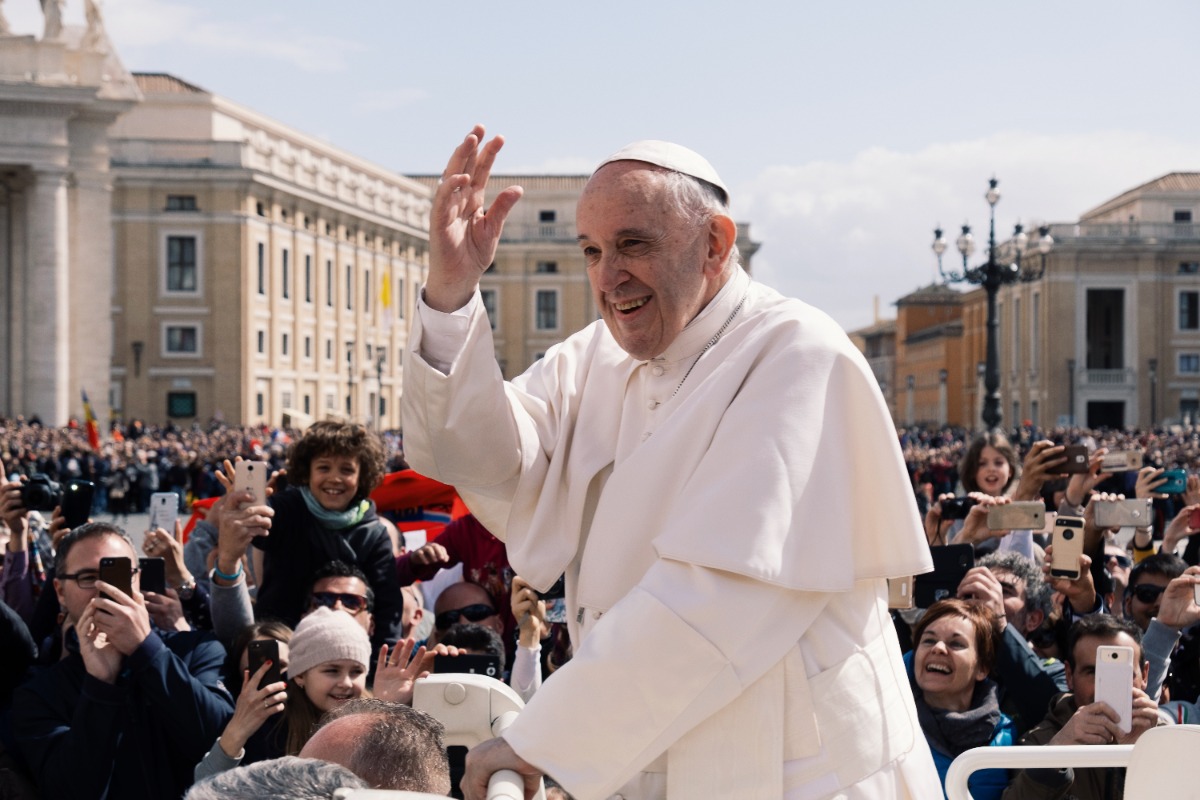
The words that Pope Francis spoke in his message for World Communications Day in 2014 take on new force in the reality we live in 2020, where digital technology, communication and information become indispensable in our day-to-day lives.
In our days, he writes, "the media can help us to feel closer to each other, to perceive a renewed sense of belonging, to feel a sense of belonging, to feel a sense of belonging to each other, to feel a sense of belonging, to feel a sense of belonging, to feel a sense of belonging. family unity that will drive us to the solidarity and to the serious commitment to a more dignified life for all."
Communicate well, he goes on to explain, it helps us to get to know each other better and to be more united, under certain conditions: it helps us to break down the walls that divide us," he says.if we are willing to listen and learn from one another;" to dialogue and encounter if we are "willing not only to give, but also to receive from others." In this sense, the message is highly positive. Thus, with respect to communication networks, it states that "The Internet can offer greater possibilities of encounter and solidarity among all; and this is a good thing, it is a gift from God."
At the same time, it recognizes the problematic aspects, the limits: the speed at which information flows exceeds our ability to understand it. reflection capacity and judgment, and does not allow for adequate self-expression; the variety of opinions expressed can lock us into our own interests, isolating us from others, and especially from those next to us; and then there are those who do not have access (perhaps because they cannot) to these means of social communication, who run the risk of being excluded.
But the warning and the underlining is important: the limits and drawbacks of the media should not lead to rejecting them, but to perceiving that ".communication is, in the end, a more human than technological conquest". And how can we grow in humanity through the digital world?"
Recovering a sense of slowness and calm, of time and silence, to listen and reflect, to welcome others, to appreciate the differences of cultures and traditions. Thus, he adds, "we will also be able to better appreciate the great values inspired from the Christianityfor example, the vision of man as a person, marriage, and the familythe distinction between the religious sphere and the political spherethe principles of solidarity and subsidiarity, among others."

Pope Francis on World Communications Day (January 24, 2014)
Using a vocabulary that is dear to him, it is a matter of promoting a "culture of encounter"Despite our limits and sinsHow to do it? This question is similar, says the Pope, to the one posed to Jesus when he was asked: Who is my neighbor? (Lk 10:29).
Now we can translate it as follows: "How does the 'proximity' in the use of the media And in the new environment created by digital technology?".
The Lord's answer with the parable of the Good Samaritan is also a good answer to our question. That man not only approaches, but "takes charge" of the other, he becomes a fellow man for the one who needs him. "Communicating means, therefore, becoming aware that we are human, children of God."
Instead, he points out, "when the main objective of the communication is to induce the consumption or the manipulation of people, we are faced with a violent aggression". as the one the man had suffered, leaving him half dead.
How to take charge of others, to be more human, to experience real "encounters" in the digital space? "Not enough -Pope Francis observes. to pass through the digital 'streets', i.e. simply to be connected: it is necessary that the connection is accompanied by a real encounter."
It is necessary, he proposes, that we see and experience the digital network not as a network of cables but above all as a network of human beings. And for that it is necessary to put oneself at stake: "The personal commitment is the very root of a communicator's reliability." Well, "precisely for this reason Christian witness, thanks to the network, can reach the existential peripheries"..
"We need to see and live the digital network not as a network of cables but above all of human persons" Pope Francis.
Digital streets, like all other streets, are "populated with humanity, often wound," of people looking for a salvation or a hope. The same as there is to open the doors of the Church (in a physical and also spiritual sense, personally and institutionally), they must also be opened in the digital world, "both for people to enter, in whatever condition of life they may find themselves, and for the Gospel I can cross the threshold of the temple and go out to meet everyone."
For this reason, the Pope points out, what is important in this area is not the bombardment of religious messages, but the will to giving oneself to othersAs Benedict XVI pointed out in speaking on this subject, ".through our willingness to respond patiently and respectfully to their questions and doubts in the search for truth and the meaning of human existence". (Message for the 47th World Communications Day, 2013).
Pope Francis gives the example of the conversation of Jesus - the greatest communicator of all times - with the disciples of Emmaus. It is a challenge that "It requires depth, attention to life, spiritual sensitivity." And it is that "dialogue means to be convinced that the other has something good to say, to welcome their point of view, their proposals." "Dialogue -clarifies- does not mean renouncing one's own ideas and traditions, but rather the claim that they are unique and absolute.".
In short, in order for our communication to be positive, both in the human sphere and in openness to the faith, the Pope advises us, we must "approach, with love and tenderness, those whom we meet wounded on the road." And with the advice comes momentum and encouragement: "Do not be afraid to become citizens of the digital world.". We are facing a "great and exciting challenge that requires renewed energy and a new imagination to transmit to others the beauty of God.".
It is worthwhile to embark on this path, new for many of us, almost natural for younger people, also to educate in dialogue and witness, which are the main channels for encounter in the digital world, and therefore also for the proclamation and transmission of the faith.
Mr. Ramiro Pellitero Iglesias
Professor of Pastoral Theology
Faculty of Theology
University of Navarra
Published in "Camineo Info".